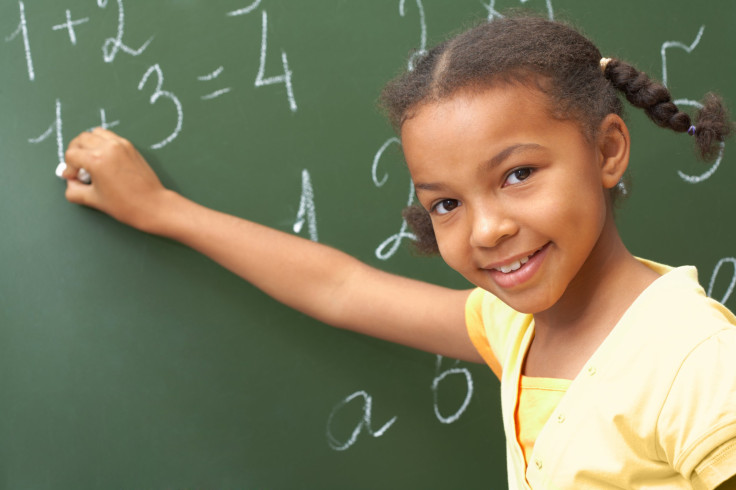Math Skills In Childhood Can Permanently Affect Brain Formation Later In Life

Not good at math? Don’t worry. According to a recent study, it’s more of a reflection of your childhood memory skills than of your overall intelligence. Researchers looked at the brains of children as they completed math equations and saw the memory section is increasingly used more than counting sections as a child ages. Unfortunately, failure to memorize math when young could affect your brain’s development and leave you forever counting your fingers and toes.
Researchers from Stanford University conducted a study to see how the brain reorganizes as a child learns math throughout their school career, ABC News reported. As common with most, kids' math worksheets were nearly impossible without the use of one’s fingers and toes. Eventually, if you were lucky, solving the problems became second nature. It was this transitional stage of childhood that the researchers were interested in learning more about.
In the study, 28 children between 7 to 9 years old were shown a series of simple addition problems while an MRI machine took scans of their brains. The children were asked to press a button indicating whether or not the equation/answer sets they were viewing were correct or not. As this was done, scientists recorded both the speed of their response and what areas of the brain were used to obtain their answer. The children were also presented the mathematics equations face-to-face so that researchers could take note of whether they moved their lip or counted their fingers when trying to come up with a correct reply. The same group was tested again about a year later to see if any changes had occurred in computational process.
It was observed that the older the children became, the more they seemed to rely on fact retrieval rather than counting numbers. The MRI scans showed that there were physical changes as well. With age neural connection in the hippocampus, the region of the brain commonly associated with memory were formed to make the fact retrieval easier. "The stronger the connections, the greater each individual's ability to retrieve facts from memory," Dr. Vinod Menon, senior author on the study explained to ABC News.
When the same study was repeated on adolescents and adults, the researchers observed that the brains of adults dealt with math equations differently than the brains of children. For example, in most adults the retrieval of simple math answers came automatically without any use of the counting region of the brain. It seemed that the years of math practice resulted in a permanent physical change in the brain’s patterns and connections.
Although these findings are remarkable, we know that in reality we know that seemingly simple math equations do not come easily for everyone. It was suggested that failure to complete this counting-to-memorizing transition in childhood is “impairing or slowing down their math learning later on,” Dr. Kathy Mann Koepke of the National Institutes of Health, the organization who funded the study, explained. The team hopes that information found in their study can help to develop better ways to help children who exhibit math learning disabilities better overcome their disadvantage and not let it forever hinder their computational skills.
The researcher’s advice to parents of young children: Keep on with those multiplication and addition math drills because “experience really does matter,” Mann Koepke added.
Source: Menon V, Qin S, Cho S, Chen T, Rosenberg-Lee M, Geary. Hippocampal-neocortical functional reorganization underlies children's cognitive development. Nature Neuroscience. 2014.



























